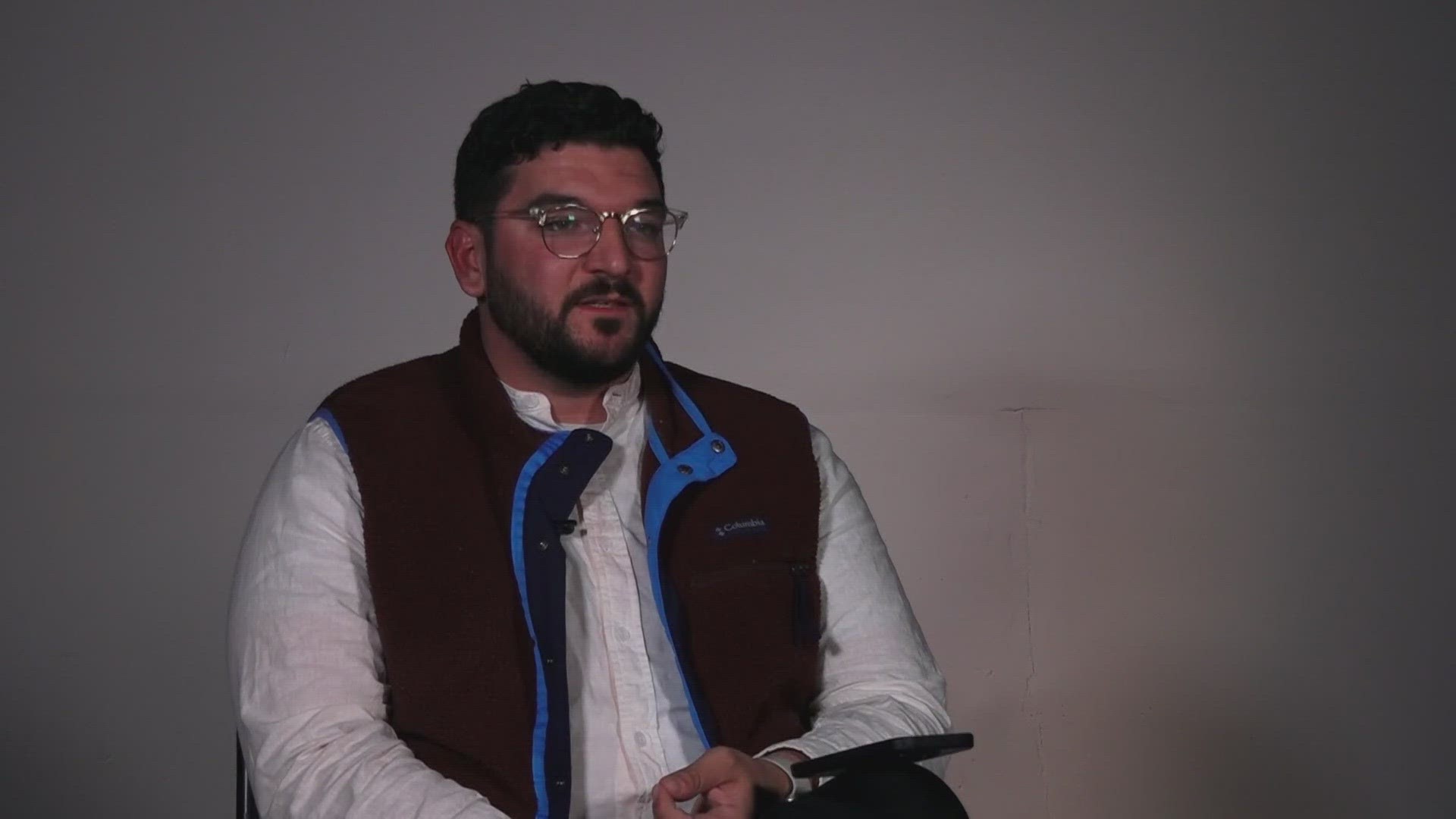KNOXVILLE, Tenn. — With endorsement from more than 500 organizations across the U.S., thousands of people are expected to march in Washington D.C. on Saturday to call for a ceasefire in the Israel-Hamas conflict and to advocate against U.S. funds being used to support Israel's military.
The National March on Washington for a Free Palestine is partly organized through The ANSWER Coalition but involves groups from across the U.S. It's expected to begin at 12 p.m. on Saturday with speeches and music. A rally is scheduled to begin at 2 p.m. and go until 4 p.m. before the march itself.
Abdalla Husain will be among the participants. He said at least 160 people of several different religious and cultural backgrounds from the Knoxville area are expected to drive through the night on Friday to march on Saturday.
"People of all different faiths, and of all different cultural and ethnic backgrounds are attending this march because this is not an issue related solely to religion or ethnicity. This is an issue of humanity. This is an issue of human dignity," he said.
Husain said he has family in the West Bank, an area separate from Gaza where most of the fighting has flared in the Israel-Hamas conflict. But, he said his family has still seen violence. He said fighting there has recently resulted in Palestinians killed.
"There's a lot happening in the West Bank as well. Israeli forces have raided the city of Jenin and have begun destroying the infrastructure," he said. "They've begun bombing the streets, targeting water lines and water mains, and targeting electric power to destabilize and cripple the city."
The United Nations said as of Nov. 1, almost 9,000 Palestinians were killed, mostly women and children. Another 22,000 others were wounded and 2,000 are missing, the UN said. The UN General Assembly also called for an immediate and sustained "humanitarian truce leading to a cessation of hostilities."
The UN also said around 1.5 million people in Gaza, around 70% of its population, had fled their homes because of Israeli bombardment and attacks.
"When we say 'Free Palestine,' we do not mean the annihilation of Jews. When we say free Palestine, we mean that we hope for the freedom, the human rights, and the human dignity for all people living in that area," said Husain.
The fighting began after Hamas, a militant group elected to power in Gaza during the mid-2000s, launched an attack against Israel around the anniversary of the Yom Kippur War. It was a death toll unseen since the 1973 war with Egypt and Syria.
The UN said in 2019 more than half of all people in Gaza were under 18 years old, indicating they were not able to vote for Hamas.
Husain also said Palestine's history isn't necessarily tied to borders or religion.
"This is what we call the Palestinian people, that eat things like hummus and falafel and Zatar. Right? This is our culture. We have a rich culture of music and food, and, and dance. And we've existed there for an incredibly long amount of time," he said. "There are Palestinian Christians. There are Palestinian Muslims. There's Palestinian Jews."
According to the UN, Palestine's history and the history of conflict between Israel and several Arab nations stretches back decades into the 1940s, when the General Assembly called to divide Palestine into a "Jewish State" and an "Arab State."
The UN also said a period of time known as the Nakba, meaning "catastrophe" in Arabic, refers to when Palestinians were displaced as part of the division. Since then, hostilities have repeatedly flared in the region.
The attack that started the fighting caught the Israeli military off guard and killed around 1,400 people on Oct. 7, 2023. The following day, Oct. 8, Israel declared war against Hamas and began bombarding Gaza. The defense minister promised a ground invasion as water, electricity and food access was caught off for the area and a million people were ordered to evacuate by Israel.
On Nov. 3, Israeli President Benjamin Netanyahu pushed back against growing U.S. pressure for a “humanitarian pause” in the nearly month-old war to protect civilians and allow more aid into Gaza, insisting there would be no temporary cease-fire until the roughly 240 hostages held by Hamas are released.
U.S. officials also said they are not seeking a ceasefire but short pauses in specific areas to allow aid deliveries or other humanitarian activity, after which Israeli attacks would resume. Netanyahu has not publicly addressed the idea and has instead repeatedly ruled out a ceasefire.
Previously Josh Paul, a State Department official who oversaw the congressional liaison office dealing with foreign arms sales, resigned over U.S. policy on weapons transfers to Israel.
The march on Saturday will call for lawmakers to divert U.S. funds away from Israel, and call for a ceasefire in the fighting.
"A ceasefire means an immediate end to the bombardment of civilians in Gaza. It means an immediate end to the bombardment of schools and hospitals and homes in one of the most densely populated pieces of land on Earth," Husain said.

